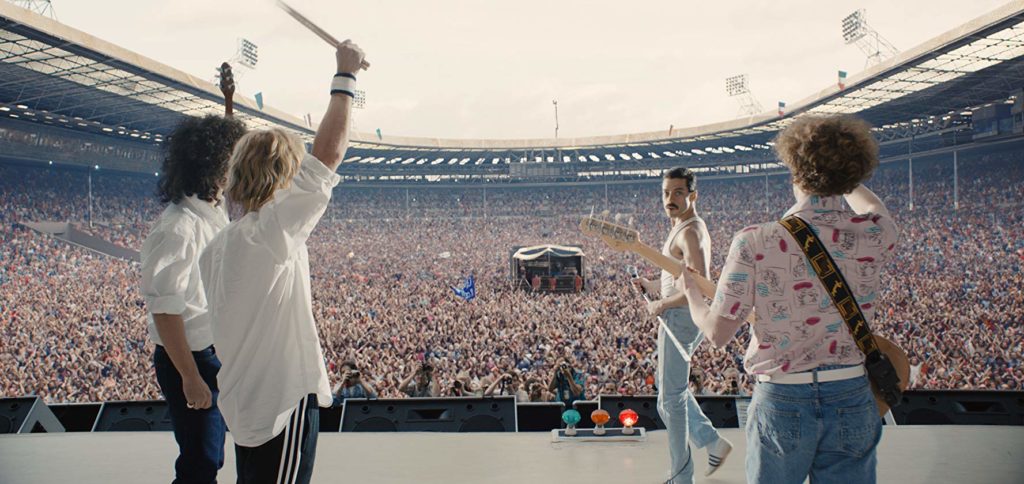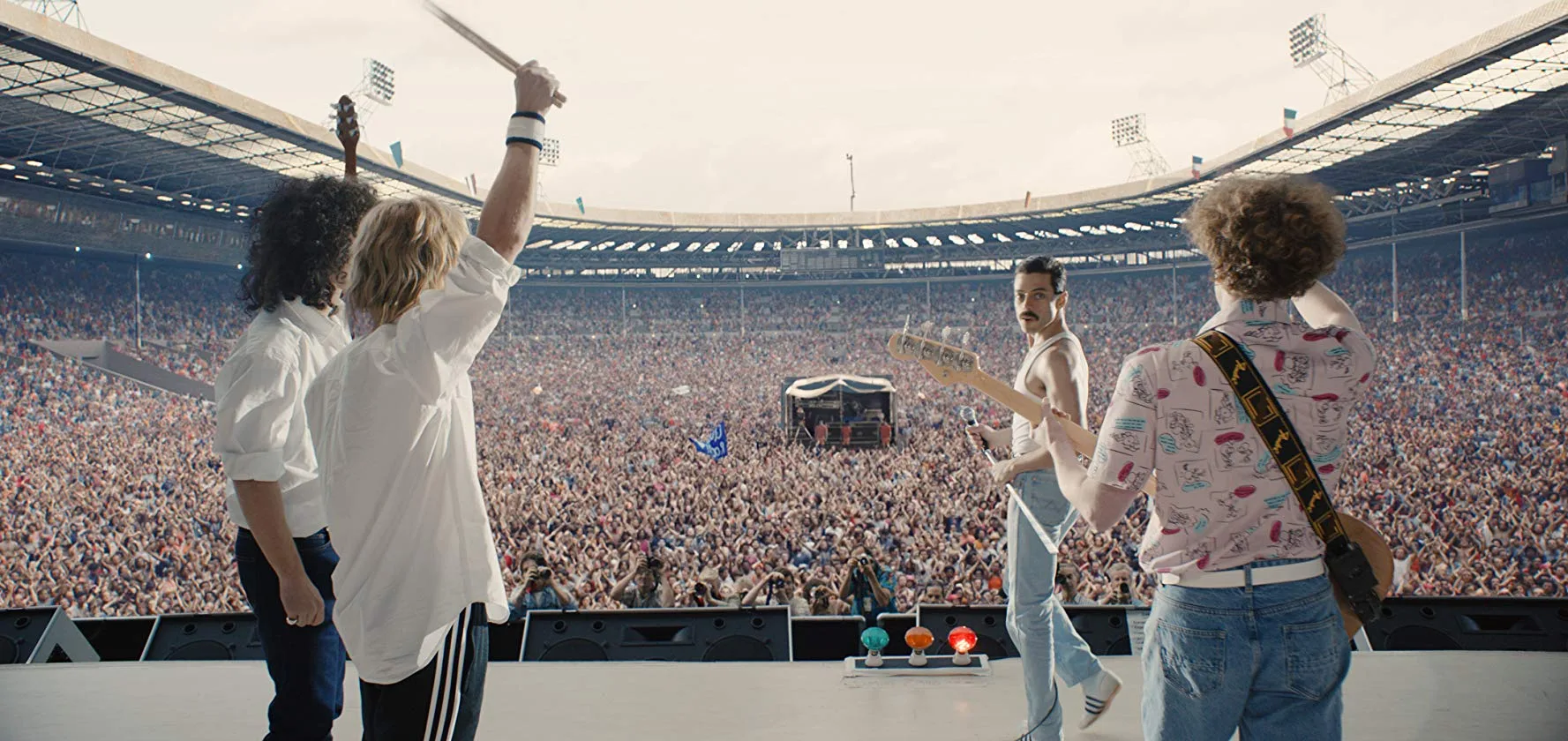Bohemian Rhapsody
[imdb style=”white”]tt1727824[/imdb]
The story of Freddy Mercury and Queen is told in Bohemian Rhapsody. In 1970, Farrokh Bulsara (Rami Malek), an Indian-British Parsi college student, is hired by Brian May (Gwilym Lee) and Roger Taylor (Ben Hardy) to be the new lead singer of their band Smile, adopting the new name of Freddie Mercury. Along with bassist John Deacon (Joe Mazzello), the band is reborn as Queen and quickly rise in popularity, thanks to their experimental musical style and Freddie’s flamboyant stage personal. However, backstage turmoil, including rumors in the media about Freddie Mercury’s sexuality, threatens to tear the band apart.
Bohemian Rhapsody is a biopic about Freddie Mercury and his involvement with Queen, which has been a film in development for nearly a decade, with Sacha Baron Cohen originally attached to play Mercury. However, the role eventually went to Rami Malek (Mr. Robot), who does indeed end up looking like the flamboyant front man. The film looks at Queen’s career both on and off the stage, including Freddy Mercury’s connection with his onetime fiance Mary Austin (Lucy Boynton), with the two continuing to be close, even after Freddy reveals to her that he is bisexual.

Bohemian Rhapsody is credited as having been directed by Bryan Singer (X-Men), however in actuality Singer was fired shortly before the end of principal photography and replaced by Dexter Fletcher, who coincidentally directed the upcoming Elton John biopic Rocketman. However, Bryan Singer retains the directorial credit due to DGA rules, with Fletcher being credited as an Executive Producer.
I am going to say straight out that when it comes to recreating Queen’s musical performances, Bohemian Rhapsody does quite good job. The plot of the film is designed to build up towards the band’s performance at Live Aid in 1985, which is depicted in its near entirety. However, as a biopic, Bohemian Rhapsody leaves quite a bit to be desired and I could even argue that the film falls into the trap of other biopics. While it is expected that events would be changed for dramatic event, Bohemian Rhapsody does play fast and loose with Queen’s story, speeding up their rise to fame and exaggerating the level of turmoil within the band, including suggesting that they broke up at one point.
Probably on the more problematic aspects of Bohemian Rhapsody is how the film handles Freddy Mercury’s sexuality. Ultimately, the film depicts Freddy as a bisexual man, who at the end of it all would still consider Mary Austin the love of his life. Then there is the immense vilification of Freddy Mercury’s personal manager and one-time lover Paul Prenter (Allen Leech), who is depicted as a freeloader leading Freddy down a dark path of homosexuality that eventual results in him being infected with the AIDS virus, which eventually took his life in the early 1990s.
However, despite the highly problematic aspects of the story, I would still have to say that Bohemian Rhapsody is fine enough film that at the very least celebrates Queen’s contributions to rock music. However, I do think that the filmmaker’s could have been a bit more sensitive when it came to depictions of Freddy Mercury’s personal life. Though I do have to admit that I was entertained by the cameo of Mike Myers as record executive Ray Foster, which included some tongue-in-cheek references to the use of the song “Bohemian Rhapsody” in Myers’ 1992 film Wayne’s World.
Chances are, if you are a fan of Queen, you will likely be entertained by Bohemian Rhapsody. However, the film doesn’t reveal anything about Freddy Mercury that you couldn’t find out elsewhere.


